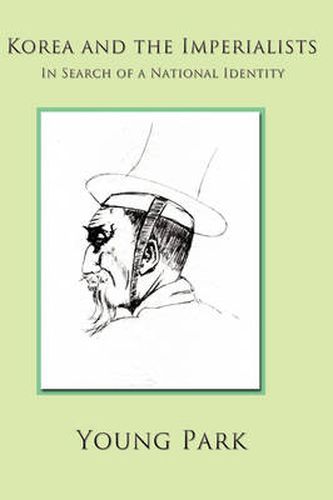Readings Newsletter
Become a Readings Member to make your shopping experience even easier.
Sign in or sign up for free!
You’re not far away from qualifying for FREE standard shipping within Australia
You’ve qualified for FREE standard shipping within Australia
The cart is loading…






This title is printed to order. This book may have been self-published. If so, we cannot guarantee the quality of the content. In the main most books will have gone through the editing process however some may not. We therefore suggest that you be aware of this before ordering this book. If in doubt check either the author or publisher’s details as we are unable to accept any returns unless they are faulty. Please contact us if you have any questions.
KOREA AND THE IMPERIALISTS Until the Korean War in 1950, except for evangelist Christian missionaries, Americans were not interested in Korea or considered it important in the scheme of things. Many did not know Korea had existed as an independent kingdom for centuries and others thought Korea might be a part of China or Japan. Nationalism, geopolitics, and imperialism were the major determinants of international events in the late nineteenth and early twentieth century. Greed and racism were the prime motivators of imperialism and non-White societies of the world were the victims. Korea was one of many countries that was invaded and made a “sphere of influence.” With the support of America and Britain, Japan destroyed Korea’s traditional national identity and made Korea a colony in the Japanese Empire. It was the perfect example of how imperialism profoundly affected the social, economic, and political life of countries subjugated by imperialist powers. After World War II, Korea was not granted independence because the Americans did not believe Koreans were capable of self-government. Korea was divided into two military occupation zones, resulting in the creation of a Russian and an American satellite state. In an effort to unite Korea, North Korea invaded South Korea. The U.S., China, and the two Korean states fought a meaningless war and Korea remains divided. Who are the Koreans? Why are there two Koreas? What is Korea’s national identity? What role does imperialism and racism play in the destruction of national identities? Hopefully, this brief history of Korea and the Imperialists will provide some answers.
$9.00 standard shipping within Australia
FREE standard shipping within Australia for orders over $100.00
Express & International shipping calculated at checkout
This title is printed to order. This book may have been self-published. If so, we cannot guarantee the quality of the content. In the main most books will have gone through the editing process however some may not. We therefore suggest that you be aware of this before ordering this book. If in doubt check either the author or publisher’s details as we are unable to accept any returns unless they are faulty. Please contact us if you have any questions.
KOREA AND THE IMPERIALISTS Until the Korean War in 1950, except for evangelist Christian missionaries, Americans were not interested in Korea or considered it important in the scheme of things. Many did not know Korea had existed as an independent kingdom for centuries and others thought Korea might be a part of China or Japan. Nationalism, geopolitics, and imperialism were the major determinants of international events in the late nineteenth and early twentieth century. Greed and racism were the prime motivators of imperialism and non-White societies of the world were the victims. Korea was one of many countries that was invaded and made a “sphere of influence.” With the support of America and Britain, Japan destroyed Korea’s traditional national identity and made Korea a colony in the Japanese Empire. It was the perfect example of how imperialism profoundly affected the social, economic, and political life of countries subjugated by imperialist powers. After World War II, Korea was not granted independence because the Americans did not believe Koreans were capable of self-government. Korea was divided into two military occupation zones, resulting in the creation of a Russian and an American satellite state. In an effort to unite Korea, North Korea invaded South Korea. The U.S., China, and the two Korean states fought a meaningless war and Korea remains divided. Who are the Koreans? Why are there two Koreas? What is Korea’s national identity? What role does imperialism and racism play in the destruction of national identities? Hopefully, this brief history of Korea and the Imperialists will provide some answers.